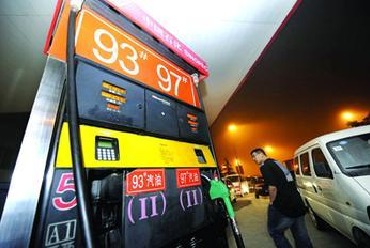 On July 20th, domestic oil prices have been raised. However, after a reporter learned from many industry sources, domestic product oil stocks are relatively high. Despite short-term increases in oil prices, prices will eventually fall. In addition, market information agencies such as Treasure Island have issued predictions: “At 0 o'clock on the 20th, domestic refined oil prices will increase, or about 330 yuan / ton." The price increase is undoubtedly a good thing for refined oil production enterprises. However, "Inventory is so high. If it rises, it must eventually fall back?" One senior executive from Shandong refining shook his head.
On July 20th, domestic oil prices have been raised. However, after a reporter learned from many industry sources, domestic product oil stocks are relatively high. Despite short-term increases in oil prices, prices will eventually fall. In addition, market information agencies such as Treasure Island have issued predictions: “At 0 o'clock on the 20th, domestic refined oil prices will increase, or about 330 yuan / ton." The price increase is undoubtedly a good thing for refined oil production enterprises. However, "Inventory is so high. If it rises, it must eventually fall back?" One senior executive from Shandong refining shook his head. It is understood that due to the poor economic situation in the country, since the end of last year, the sales of geo-refinery companies have been sluggish. After the pricing mechanism was perfected in March this year, due to the drastic shortening of the price adjustment cycle, refined oil traders have significantly reduced their own inventory to avoid the risk of international oil price fluctuations. "A last resort, we reduced the ex-factory price promotion, and drastically reduced the operating rate. At present, the operating rate has dropped from 45% at the peak to 30%, but there is no significant drop in inventory," said the executive.
He is also very pessimistic about the "money scene" of the upgraded oil company. “The cost of retrofitting an oil upgrading device is huge. If it is allocated to refined oil, the cost per ton will increase by at least 300-400 yuan. However, the market demand is not high. Can end users accept sharp price increases and how much can they accept?â€
The story of Shaanxi Lvyuan Zizhou LNG Liquefaction Plant may give an answer. Due to its proximity to PetroChina Changqing Oilfield, Shaanxi Province has built a number of LNG production plants in recent years. In August 2012, it had already put into production 5 million cubic meters per day of LNG production capacity and became a national LNG province. These factories are mostly invested by social capital with non-petroleum system backgrounds. They react very quickly to changes in the market. “We will often change the ex-factory prices of products based on market changes,†said Wang Ruiqi, an analyst at Xiwang Energy.
On June 28, the National Development and Reform Commission issued a notice to announce that after July 10 the price of non-civilian natural gas portals nationwide was raised, and the average national gate price increased from 1.69 yuan per cubic meter to 1.95 yuan per cubic meter. Many private liquefied natural gas (LNG) producers have significantly raised their LNG ex-factory prices and look forward to sharing the profit-sharing cakes. Some companies have even adjusted their prices by as much as 20%.
Shaanxi Lvyuanzizhou LNG liquefaction plant is one of the typical examples. Before the NDRC's price adjustment notice was issued, the factory's LNG ex-factory price was maintained at RMB 4,400-4,700/tonne. After the announcement, the company immediately increased the ex-factory price. From July 1st, LNG jumped to RMB 5,200/ton, which was a close increase. 20%; while another local LNG plant in Shaanxi province, its own ex-factory price was directly adjusted from 4,100 yuan/ton to 4,900 yuan/ton, or more than 20%.
"At that time, many of my colleagues admired their 'good fortune', which was a big profit this time," recalled a Shaanxi local oil company source. However, this dream of making a fortune did not last for several days. Due to the difficulty of downstream users in accepting price increases, LNG consumption was reduced and even users simply refused to purchase goods. Therefore, Shaanxi Luyuan Zizhou and other price adjustment factories began to worry about.
Wang Ruiqi said: “At low temperatures, LNG will generally remain liquid for only 3 months and cannot be stored for a long period of time. Therefore, poor downstream sales will inevitably affect the entire industrial chain.†Desperation, July 10 Since then, Shanxi Lvyuan Zizhou can only re-adjust the price that has gone up. At present, its LNG ex-factory price has already dropped back to around 5,000 yuan/ton; the company that has gone up by more than 20% has not lowered its price, but its inventory is high. It has also seriously affected the normal production progress of the company.
“So under the background of weak market demand, regardless of the price increase of refined oil or the upgrading of oil products, the key to its success or failure is not what kind of policies the state has introduced, but rather what the market accepts.†. He believes that in the oil upgrading process, the government should introduce taxation and fiscal support policies to help companies absorb some of the technical reform costs, rather than simply introduce some plans and goals.
Vacuum Filling Machine,Aseptic Filling Machine ,Automatic Filling Machine,Cosmetic Filling Machine
Guangzhou Jiluo Machinery Manufacturing Co.,Ltd , https://www.gzjiluo.com